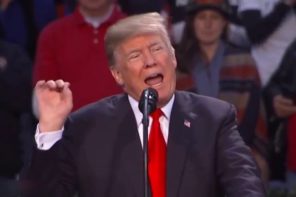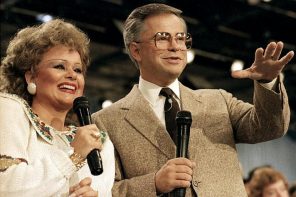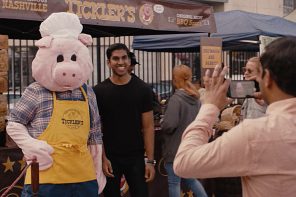On October 8th, 2019, Jameela Jamil, one of the lead actresses on the surprising hit TV-show The Good Place was embroiled in a Twitter scandal. Liberal TV personality Ellen DeGeneres, who had developed a public friendship with former president and unindicted war criminal George W. Bush, tweeted a video of a monologue from her show in which she gives the background for the viral picture of the two palling around at a football game. As she explains in the video, “Just because I don’t agree with someone on everything doesn’t mean that I’m not going to be friends with them,”
Yes, that was me at the Cowboys game with George W. Bush over the weekend. Here’s the whole story. pic.twitter.com/AYiwY5gTIS
— Ellen DeGeneres (@TheEllenShow) October 8, 2019
Jamil, baffled about the outcry, took to Twitter to defend her friend and admonish her audience that kindness was a virtue, and that DeGeneres had made “an incredibly necessary point” when she argued that we should be kind to those “who don’t share the same beliefs.” In fact, Jamil stated, “we explore this [question] in season 4 of the Good Place.”
As she would later realize, however, Jamil had misunderstood the root of the controversy. Bush had not just been a man with a troubling or different point of view, he was a man directly responsible for an estimated 200,000 civilian deaths in the nation’s longest-running war to date, while overseeing the illegal torture of hundreds. The outcry over the former president’s recent appearance as a loveable dog-painting retiree has less to do with a dislike of conservatism, or an unfair bias against the Republican Party, than with a fundamental moral question: If we cannot acknowledge and atone for the harm we cause as a society, how can we look in the mirror and see our own ?
‘Good-People’ math
As Jamil had noted, this is one of the main questions in The Good Place’s fourth and final season, the second part of which begins on Thursday, January 9th. The Good Place is a brilliant show, somehow managing to be much beloved by academics and popular audiences alike. From the second season on, TGP makes clear that the past five-hundred years have witnessed the “complication” of the world (by which the show clearly means the rise of industrial capitalism) and that one person’s actions and consumer choices no longer have a clear moral equivalent due to the many ripple effects, such as the exploitation of the unseen people they rest on. Its central question, then, prescient in a time of environmental catastrophe and the whitewashing of war criminals is, simply put, is it possible to be a good person in such a bad and complicated world? And, if so, how?
Now in the middle of its last season, the show has hit on its core argument: being a good person is not about moral imperatives and tallying up good-person-points, but rather about trying to be good in everyday life. As the Jamil incident shows, this answer, while potentially hopeful and inspiring, is also limited. By placing so much emphasis on individual acts of goodness, TGP has oversimplified the very complex problem they’ve been unique among sitcoms in asking.
On the show we learn that heaven had previously worked on a points system: the more goodness points one racked up, the more likely one was to get into heaven. We must assume therefore that in the show’s universe, as in our own, the ability of wealthy people to wield large chunks of money means that their decisions are inherently more influential than those of the poor. Thus, the show’s rich have the ability with the wave of a pen to channel hundreds of millions of dollars to one charity or another, just as easily as they could, with that same pen, make the lives of countless people under them miserable.
In fact, in many ways the show’s whole criticism of the system of heaven rests upon its devastating and pioneering—for sit-coms at least—critique of capitalism. In Season 3, episode 11, where we first begin to glean that the whole system of heaven as it has existed for all of human history is broken, we find out that an already flawed system was made inexorably worse when, five-hundred years ago, life began to become so “complicated” that almost no good deed fails to have some negative implications. As Michael, one of the main critics of heaven says:
“These days, just buying a tomato at a grocery store means that you are unwittingly supporting toxic pesticides, exploiting labor, contributing to global warming. Humans think that they are making one choice, but they are actually making dozens of choices they don’t know they are making.”
In one memorable example the show gives, in 1534, a man named Doug picked a dozen roses for his grandmother, for which he gained a number of points. In 2009, another man named Doug also gave his grandmother a dozen roses, but actually lost points for doing so, precisely because in doing so, he supported global warming and the exploitation of labor on the other side of the world.
Follow the money
Yet, even though much of the characters’ motivations and the show’s driving argument for reform rests upon this critique of capitalism (indeed the judge of all of humankind, played by Maya Rudolph, only agrees to reform heaven after going down to earth, discovering the concept of race, and realizing how imbricated every human decision is in the exploitation of others), TGP doesn’t consistently apply this critique to its wealthy characters. On the show, the rich characters must not face the implications of their social standing, their significantly higher impact on global warming, and the exploitation of global labor. Despite its courageous takes on questions of gender and race, along with its critiques of capitalism, TGP fails to ask its rich characters to do the heavy moral lifting of engaging with the origins of their wealth, where it came from and whom their livelihoods came at the expense of. Put another way: The Good Place has a capitalism problem, and Jameela Jamil’s character Tahani is a microcosm of it.
Tahani Al-Jamil comes from vast wealth, and had devoted her entire life to philanthropy, raising hundreds of millions of dollars for a variety of causes. At the same time, Tahani was stuck in the solipsism of her wealth: her parents raised her to be ultra-competitive with her sister, such that all of her good deeds were motivated by competition rather than altruism and empathy. On the one hand, the show gives Tahani a heartwarming arc, showing her development from a solipsistic narcissist who gives away fortunes for her ego in competition with her sister, to an open, caring and forgiving woman who cares deeply for her friends and family. But from another perspective, Tahani’s journey takes her from a solipsistic narcissist, who enjoys unquestioned and unimaginable opulence and leisure (which, remember, by the show’s logic, comes at the expense of millions of other people), to a caring friend who still enjoys that same unquestioned and unimaginable opulence and leisure.
Yet, Tahani must never reckon with the origins of her wealth, nor does she even inquire about it. Tahani’s parents are old Pakistani wealth with a fondness for all things British. Wouldn’t it be appropriate to ask whether the family gained their wealth in complicity with the violent British colonial regime in India alongside questions about her lifestyle and motivations? Wouldn’t it be logical to ask what bolstered her lavish lifestyle of private flights and endless parties and fundraisers? And what, exactly, her wealth did?Remember, this is a show that has clearly demonstrated its concern over climate change, to which the wealthy disproportionately contribute (even as they’re less likely to suffer the consequences).
I understand the rage
In this final season, because the show runners are brilliant, thinking people who engage with many of the possible critiques of the show and the theology they’re selling, the show introduced Brent, who represents the embodiment of evil to an educated liberal audience: a racist, sexist, elitist boomer capitalist, who spent his life buoyed by his father’s fortune and the family business he took over, and who spends the season believing himself to be, literally, too good even for heaven. This is a man who lacks a moral compass, who, it is very strongly implied, regularly sexually harassed his employees, and who spent his life in the pursuit of nothing beyond power and glory.
While the show takes significant time to point out many of his individual misdeeds, particularly his devaluation of women, not once do the characters discuss this man’s business, or the violent implications of his life. This despite his character being essentially a strawman of an evil person. Given his lack of a moral compass, it is likely that he led some sort of rapacious organization, and almost certain that he could not have cared less for those he employed. In other words, chances are he was one of the few lopsided beneficiaries of the “complicated” system that The Good Place seeks to challenge.
For a show that dares to bring up so many thorny ethical issues, and to center the mind-numbing implications of the global system of industrial capitalism, its injunction that we must all just try to be good that the show has settled upon is disappointing. Yes, we must try to be good, and yes, we must aid each other in doing so; and we must work to create a better system on earth that will benefit the majority of people while we still have the time to do so. We (particularly the wealthier among us) must grapple with our relative privilege. We must know our evil as a means to better know our good. Only thus can we transform the “complicated” system we are mired in into something that can and will work for all.
To do so, we need the same moral courage as the show’s two protagonists Eleanor and Chidi: to lovingly denounce moral failure, to humbly recognize our own flaws and to wholeheartedly endeavor to change ourselves and our society. In this, perhaps, we can again find an example in Jameela Al-Jamil. One day after voicing her support for Ellen DeGeneres’s friendship with George W. Bush, and in the midst of a storm of all manner of articles, personal attacks, and social media scribblings, Jamil had the moral courage to admit failure. On October 9th, Jamil took back her earlier comment, writing, “Ooooof learning today about the full extent of Bush’s heinous presidency … What a monstrous leader. I now understand the rage.”
As The Good Place draws to a close, I for one hope that the show follows Jamil’s moral courage and addresses its capitalism problem, as it has an historic and almost unprecedented opportunity to do. Maybe it can give us all the courage to do the same.





